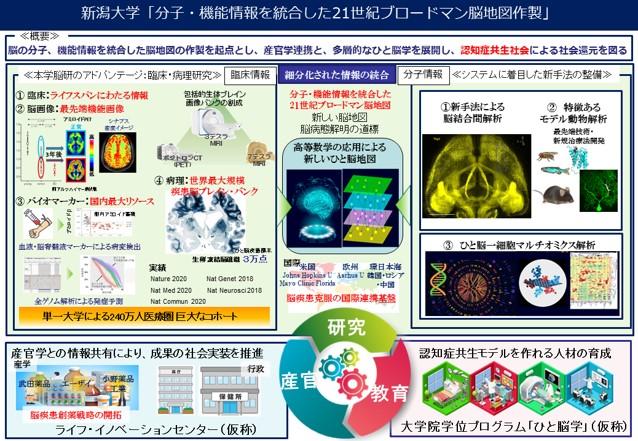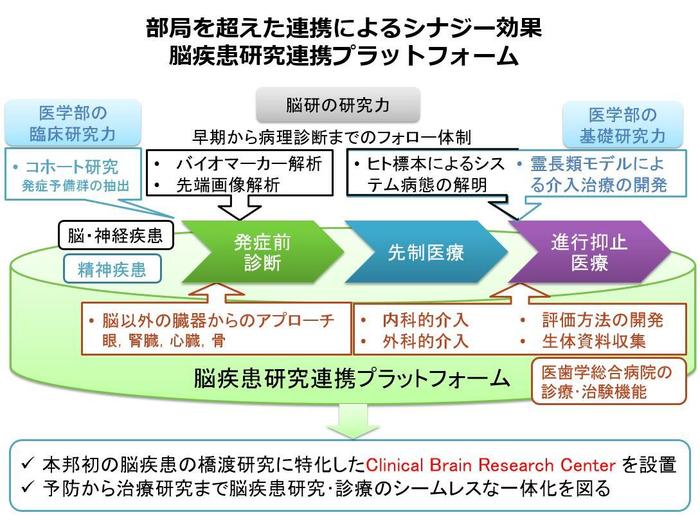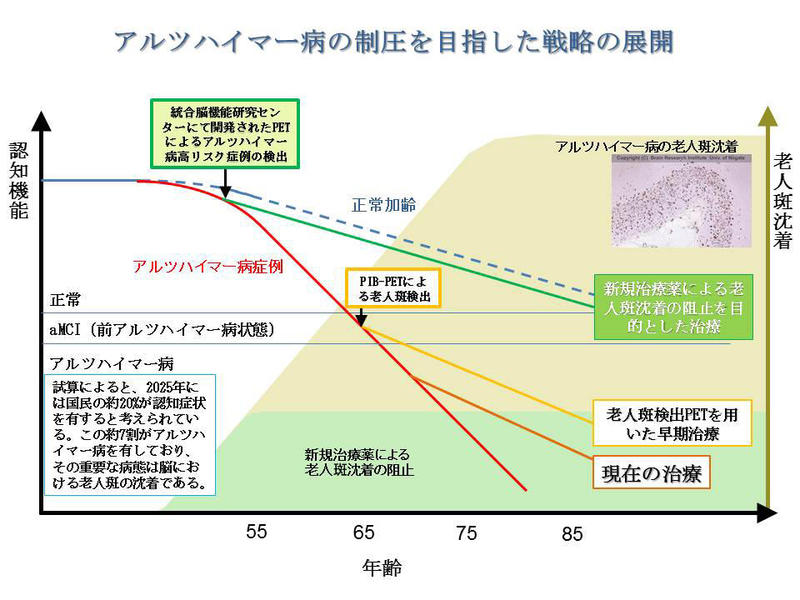21st Century Brodmann Areas Mapping Integrating Molecular and Functional Information
(MEXT Education and Research Organization Reform Project)
The center for industry-academia-government collaboration and human resource development to complete a "brain map" integrating molecular and functional information in the brain that will serve as a guidepost for a dementia inclusive society
Overcoming age-related diseases of the brain, such as Alzheimer's and other types of dementia, is an urgent issue. In order to develop treatments for these diseases, it is important to establish diagnostic methods that can accurately estimate prognosis at an early stage. To do so, we need a map that can serve as a guidepost to predict the progression of the disease in the brain. This project aims to develop social implementation and human resource development in collaboration with industry, government, and academia, starting with the creation of a new human brain map that will serve as a guide to understanding the progression of brain diseases, and to give back to society through a dementia inclusive society.
To achieve this aim, we are working on the establishment of cell dispersion technology from human brain tissue, clearing technology and cell labeling technology for human brain tissue, and the creation of function-related maps of brain regions using functional MRI.

Clinical research promotion project for neurological disease by establishing the system neuropathology : Establishing a platform for clinical research utilizing neuropathological resources
(MEXT special expenditure project) FY 2016-2021
In therapeutic research of brain disease, the diagnostics bound by the traditional theory of localization of brain function appears no longer sufficient. In order to overcome brain disease, there has been an increasing demand for a new academic discipline, which allows us to understand brain disease in accordance with the functional connectivity of each part of the brain. Niigata University launched a project aimed at setting a new pathological assessment method, naming such neuropathology as "System Pathology for Neurological Disorders." Conducting interventional trials based on the knowledge will pave a way to overcome brain disease.
Connecting the collective expertise in brain at BRI, a number of research projects on neurology at School of Medicine and the medical care system at University Hospital together, the project aims to ensure a seamless environment that will readily translate basic scientific findings into therapeutic interventions for patients. The project seeks to launch a clinical research center, which will serve for translational research on brain disease.

Drug discovery for Alzheimer's disease
(MEXT Joint Usage / Research Center reinforcement project) FY 2015-2020
20 years of research efforts at Center for Integrated Human Brain Science has successfully developed non-invasive imaging method for preclinical diagnosis of Alzheimer's disease (AD), and has also demonstrated that disturbance in aquaporin-4 (AQP4) functionality, which hinders proper clearance of β-amyloid, plays a significant role in the pathogenesis of AD.
The project aims to apply such a developed diagnostic technique in preventing AD: together with establishing an early diagnostic method for AD using magnetic resonance imaging (MRI) and positron emission tomography (PET), the project will target discovery of the new drug designed to modulate AQP4 function and prevent impairment in clearance of β-amyloid.






